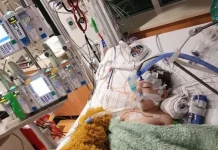Commentary: Democracy In The Time Of Coronavirus
By Mary Beth Schneider
TheStatehouseFile.com
INDIANAPOLIS — We are defined these days by numbers.
The number infected. The number dead. The number of businesses shuttered and unemployment claims filed. The number of testing kits available and number of tests completed. The number of days our children will be out of school.


Most tallies, sadly, are only growing, with more sick, more dead, more unemployed.
One number, for Indiana, is shrinking: The number of days until the May 5 primary election.
Today, it remains an open question whether that election will take place that day, and whether voters will even go to the polls or instead make their choices by mail in an unheard-of expansion of absentee balloting.
The election may seem the least of our problems, and the life-and-death tragedies the world is facing in this pandemic changes our perspective on almost everything.
But in a nation of government “of the people, by the people, for the people,†the right of the people to make their choices is no trivial matter. When voters are seeing parts of government failing them, and parts of government rising to address a crisis unlike any we’ve faced before, it might be more important than ever to ensure that democracy isn’t considered a luxury we cannot afford.
This week, Indianapolis Mayor Joe Hogsett announced that absentee ballot applications will be sent to every registered voter in Marion County. It’s an unprecedented step at a time when unprecedented steps are becoming the norm. And in a rare show of bipartisanship, Indiana Republican Party Chairman Kyle Hupfer and Indiana Democratic Party Chairman John Zody issued a joint letter asking the Indiana Election Commission to temporarily suspend the rules on who can apply for an absentee ballot to let anyone, for any reason, vote by mail.
“Maintaining the integrity of our elections and preserving a citizen’s right vote, even under difficult circumstances, is the bedrock of our republic,†they wrote.
An emergency meeting of the commission — comprised of two Republicans and two Democrats — was set for Friday, then canceled. And Gov. Eric Holcomb, in his Thursday coronavirus briefing, made no announcement, as many had expected him to do.
Asked about the primary by reporters, Holcomb said Secretary of State Connie Lawson was in ongoing discussions with Zody and Kupfer to find consensus.
“I personally support postponing the primary election,†Holcomb said. “I say this out of, first, concern for county officials that have to conduct these elections, for poll workers and voters themselves. The details have to be worked out.â€
On the table: Moving the primary to June 2 or even as late as August.
So far, Democrats at least have not agreed to that, preferring instead to expand mail-in voting.
Time is running out to make a decision. Printing and mailing that many absentee applications and ballots cannot be done overnight.
Indiana doesn’t want to be Ohio, where the decision to postpone that state’s primary until June 2 was made the day before its March 17 scheduled date, after a court fight over whether the governor had the power to make that decision.
And we don’t want to be Illinois, which went ahead with its March 17 primary election only for some voters to find their polling places closed or opening late when poll workers failed to show up.
Anthony Long, a Democrat who has served on the Indiana Election Commission for decades, told me Thursday that he is glad to see Holcomb trying to reach bipartisan agreement.
Holcomb may have no choice, despite his declaration of a state of emergency. Indiana law says the primary “shall†be held on the first Tuesday in May and puts emergency powers regarding elections in the hands of the election commission, not the governor. Given that it would require a unanimous decision by the commission, it makes bipartisanship a necessity, not a nicety.
Many Democrats have started to fret that President Trump will try to postpone the November election if the pandemic is still disrupting America.
While Long said he’s not had anyone raise that concern with him, he said that’s one reason why “it’s so important that there are (bipartisan) discussions at all levels.â€
“There just has to be open communication,†he said. “If either side at any time starts doing this on their own, without joint participation, then it’s a real recipe for disaster.â€
We’re already in a health and economic disaster.
We don’t need a democratic one too.
FOOTNOTE: Mary Beth Schneider is an editor at TheStatehouseFile.com, a news website powered by Franklin College journalists.







wow fake news commentary and a demoncrat lawyer that posted on this site……………………….a few days ago…….lolllllllllll tony shorty replying to ME al sharpie i love it………without a doubt…………….https://city-countyobserver.com/commentary-what-we-learned-from-buttigieg-2020/
Comments are closed.